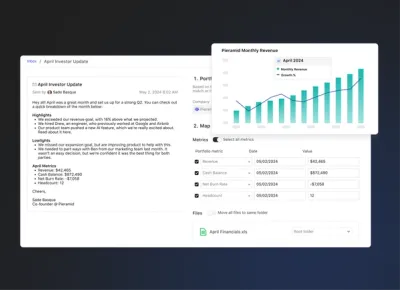
As a founder, the day-to-day can often feel like a juggling act. Constantly, trying to optimize time between building a product, growing revenue, attracting capital, and delighting employees. At the end of the day, one could argue that the overall health of the business comes down to attracting capital and retaining employees. Without capital, a business fails to exist. Without talent, a business fails to flourish.
When a founder sets out to raise capital it can often feel like a siloed process where the rest of the company has little to no knowledge of the status. However, a company’s ability to fundraise is often one of the only external benchmarks a startup employee may have. So how do employees think about the company’s fundraise? And what does it mean for a founder?
Finding the Right Valuation
For a startup employee, measuring their company’s success can be difficult. More times than not, an employee’s only external benchmarks are how much capital their company has raised and at what valuation. Employees use their company valuation as a measurement for their overall company success and in turn their desire to stay and grow at the company.
It is the founder’s duty to find the right balance between the company, investor, and employee needs. When there is high demand for a round, it can be easy to raise at the highest valuation possible. If you overvalue the company, you’ve raised the bar for what it takes to clear the valuation bar for your next round. If you undervalue the company, employees may start to wonder if things are actually going well.
Inevitably, a company’s valuation will eventually meet the true worth of the company. Deciding how to portray and manage this is in the hands of the founders. At the end of the day, employees will want to see the valuation of the company moving up and to the right.
Raising the Right Amount
With a valuation comes the amount fo capital the company actually needs to raise. Most employees would be thrilled to open Crunchbase and see news that their company raised a huge round. However, this may not be in the best interest of the business. When a founder thinks about how much to raise, they need to keep their next 12 to 24 months in mind.
As Scott Kupor, Managing Director at Andresseen Horowitz puts it, “Raise as much money as you can that enables you to safely achieve the key milestones needed to raise your next round of fundraising.” Remember that raising too much money can be death for startups as they recklessly burn capital. Scarcity is the mother of invention. However, raising too little money at an aggressive valuation can weaken ambition to hit big goals in a short amount of time.
Just like everything in a founder’s day to day work, fundraising is about finding the right balance. It is the duty of the founder of balance the needs of their company, their employees, and their investors. Want to learn more about raising capital? Check out our other fundraising posts.




